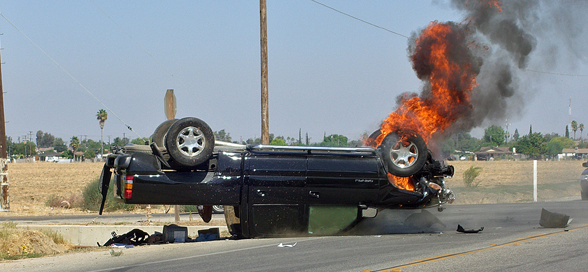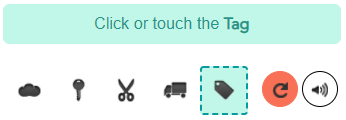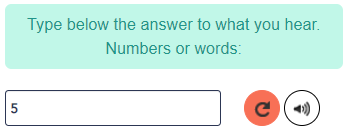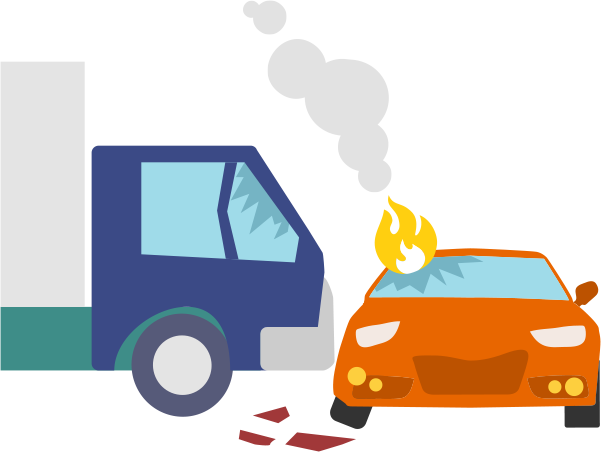Table of contents
What is accident forgiveness car insurance coverage?
If you’ve ever been in a car accident before, you understand there are often serious financial consequences — especially if the accident is your fault. In fact, an at-fault accident raises auto insurance rates by an average of $767 per year! With price hikes that high, accident forgiveness coverage can be tempting.
But what does "accident forgiveness car insurance" really mean? The answer can get pretty complicated — and we'll sort it out in a second — but for now, the short answer: it depends on your insurer. Let’s explore accident forgiveness policies across some major insurance companies.


Accident forgiveness auto insurance: the basics
Accident forgiveness ensures your auto insurer won't raise your rates after your first accident. Accident forgiveness refers specifically to at-fault accidents. Comprehensive claims wouldn't fit into this category, but a collision-type claim would, as it is considered a chargeable accident.
Finding the best car insurance with accident forgiveness
Although the following insurers advertise accident forgiveness car insurance, not everyone who applies will qualify for the program. Eligibility is based on individual qualifications and location. Insurers in some states — notably California— do not offer accident forgiveness programs. Below is a comparison of accident forgiveness programs across major auto insurance companies.
Table of contents


Liberty Mutual
Liberty Mutual’s accident forgiveness policy is straightforward. If you're accident-free for five years (with any company), Liberty Mutual will forgive your first accident and not raise your rates. This policy applies to all drivers in the household, including teenagers. Liberty Mutual only forgives one claim per household, not per driver.
Liberty Mutual auto accident forgiveness coverage is not available in California.
Nationwide
Nationwide's car accident forgiveness program is available at an added cost. Like many other accident forgiveness policies, Nationwide forgives your first at-fault auto accident on the policy. Nationwide couples another discount to the policy: a safe driving discount, in which you would receive an additional 10% discount if you remain accident-free for five years.
GEICO
GEICO’s accident forgiveness offers a unique add-on to the general program outline offered by other companies. The company will forgive your first auto accident, no matter who on the policy is found at-fault. GEICO accident forgiveness can be earned or purchased. In order to earn accident forgiveness through GEICO, you need to be older than 21 and have an accident-free recent driving history (five years). driver.
This coverage is not available in California, Connecticut, or Massachusetts.
Progressive
Progressive's accident forgiveness program is a tiered loyalty program. While you don't pay extra for it, you must be insured with an accident-free driving record with Progressive for a certain period of time in order to qualify. Even if you've been accident-free for decades, you would not immediately qualify for Progressive's
Table of contents

Allstate
Allstate's accident forgiveness plan works differently than other accident forgiveness car insurance policies. To qualify for accident forgiveness through Allstate, you must pay using the company's Gold or Platinum coverage plan. Together, these plans are known as the YourChoice Auto plan. For a gold plan, it takes three years without an accident in order to be eligible for accident forgiveness. With the platinum plan, your accident forgiveness begins immediately. This coverage is not available in California.
Erie
Erie insurance offers several options for accident forgiveness coverage. The first, more standard coverage, First Accident Forgiveness, follows the same concept as other companies: the first accident isn't chargeable if you've been a customer for three years. The company's second feature, called Feature 15, refers to a loyalty program that forgives all at-fault auto accidents if you are with Erie for 15 years. The company does not specify whether you need to be claims-free for the 15-year term in order to qualify, so you would need to speak with your agent to see if you are eligible.
Travelers
Travelers offers auto accident and minor violation forgiveness for a fee, forgiving one accident or violation every three years. In terms of the monetary cost of a "violation," it is not clear if they are referring to driving without your lights on (about $68 per year), speeding (depends on how much you are exceeding the speed limit by) or a DUI ($1,099 annual increase). If you're with Travelers, ask your accident exactly which kind of violation they are referring to.
What is accident forgiveness car insurance coverage?
Deciding on whether or not to purchase accident forgiveness coverage and which insurer to use are difficult choices. You'd want it if you need it, but is the price worth the payout? Here are some other questions you should ask yourself before making a decision:
• How likely are you or someone on your policy to be in an at-fault accident or to file a claim?
• Does the coverage apply to everyone on the policy? Especially inexperienced or risky drivers?
• Is the additional premium of the coverage less than the increased rate of an at-fault accident?
If your head is spinning after those questions, don't panic. Let's walk through the considerations.
First, consider whether anyone on your policy is a high-risk driver. These policies can apply to all members of your household, including teen drivers. If you’re worried about an inexperienced family member, consider this policy. If you’ve never had an accident in your adult life and have a clean claims record, you might not need this coverage.
Always read the fine print of your policy to look for hidden exceptions. If you're interested in accident forgiveness to cover your teenage son but teenagers are excluded from your insurer's clause, you should consider other options. Another common clause includes: all drivers must be accident-free for three to five years in order to qualify. In this case, a newly licensed driver might have trouble getting accident forgiveness coverage, as they might not have a driving record longer than a few months.
The third question is a little harder to answer. The amount you’d pay for an at-fault accident depends on many variables. On average, expect to pay $384 more per six-month term after an at-fault accident. Considering you’ll be charged for three years after most at-fault accidents, you’ll be charged $2,301 in addition to whatever your premium is for your accident.
Increase at 6 Months
$384
Increase at 12 Months
$767

Table of contents
So, if you’re worried about the likelihood of having an at-fault accident and that scary $2,300 chargeable premium, consider accident forgiveness. A licensed insurance agency should be able to quote you the exact cost of adding accident forgiveness to your policy.




























